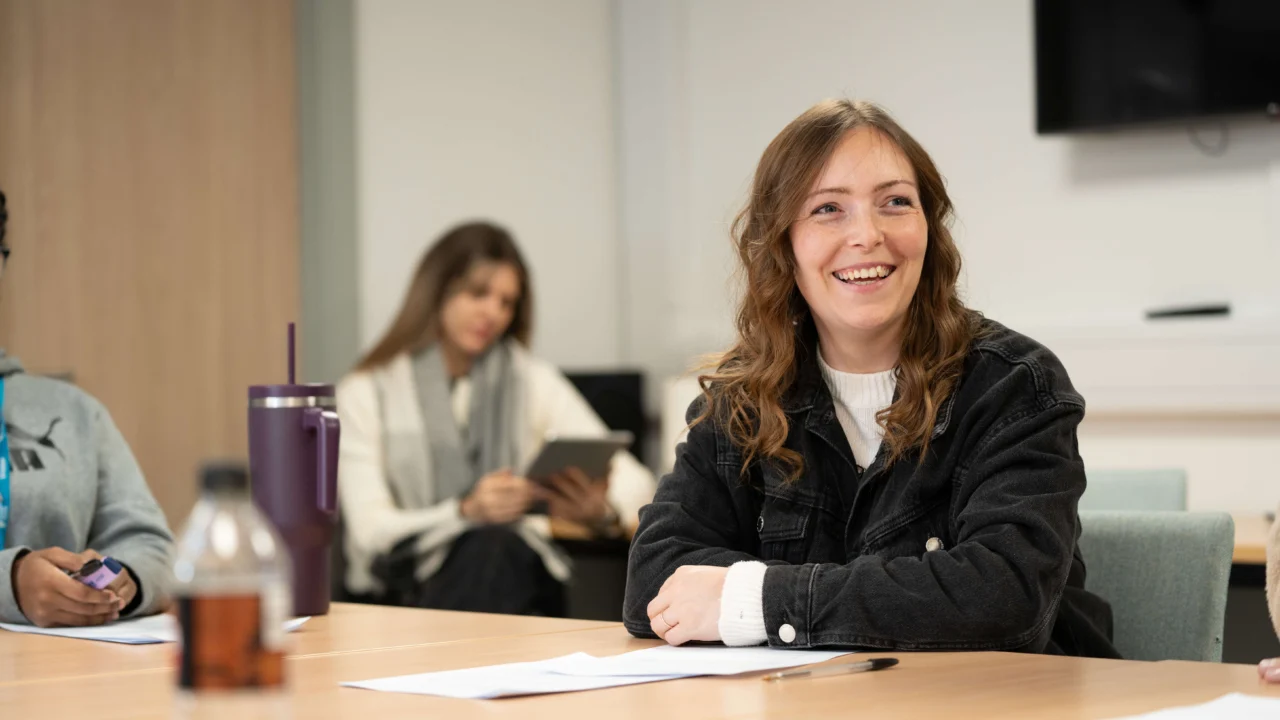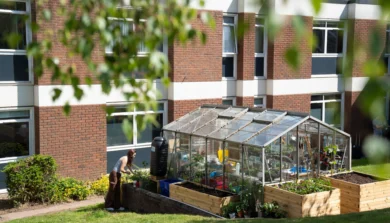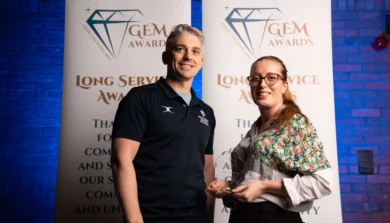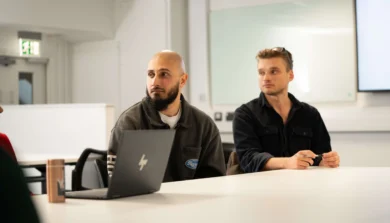BA Counselling Studies (Top-Up)
Foundation
- Start date
- –
- Study mode
- –
- Course length
- –
- UCAS Code
- –

Interested in a different start date?
Course Description
The Counselling Studies BA (Hons) Top-Up award is a level 6 course designed to build upon previous counselling training or enhance knowledge and understanding of the counselling profession for those who have studied an aligned subject. The programme provides a deeper theoretical base for those who have an interest in applying counselling theory within a variety of practice contexts. The Top-Up programme will also equip students with research knowledge and skills.
Why study this course
– This Top-Up programme integrates with and builds on students’ existing training to provide an academic top up qualification at degree level
– Students on the Counselling Studies Top-Up award will develop and practice the ability to critically reflect on counselling texts, ideas and practice
– All students take a year-long research methods module, which will enhance their understanding of the role of research within counselling and prepare them for the dissertation module
– The experience of conducting research will equip students to work alongside other graduate professionals
– The programme will enhance students’ academic understanding and employability
Counselling, Psychotherapy & Talking Therapies Team
– Faisal Mahmood (Head of Subject (Counselling, Psychotherapy & Talking Therapies)
– Joanne Adams (Lecturer / Placement Manager)
– Kathryn Broome (Lecturer / Programme lead Introductory Cert Counselling)
– Stephanie Carr (Lecturer)
– Emily Evans (Senior Lecturer / Joint Programme lead FD)
– Carl Flynn (Senior Lecturer / Programme lead PWP)
– Sam Gallo (Senior Lecturer / Programme lead MSc Integrative Counselling)
– Kiran Kalsi (Lecturer)
– Karen Lee (Senior Lecturer)
– Linda Luckhurst (Senior Lecturer / Programme lead Advanced Diploma Psychotherapy)
– Awisha Magar (Lecturer)
– Bill Naylor (Senior Lecturer / Programme lead Counselling, MH & Wellbeing)
– Steve Roberts (Senior Lecturer / Joint Programme lead FD)
– Cassie Rowland (Lecturer)
– James Sedgwick (Senior Lecturer / Programme lead MSc in Integrative Psychotherapy)
– Rebekah Woodhouse (Senior Lecturer / Programme lead Joint Honours and Top Up)
– Sandra Boden – Senior Lecturer

Got a question you’d like to ask?
Entry requirements
We welcome students from all backgrounds and accept a wide range of qualifications. If yours aren’t listed, don’t worry – our Admissions Team can help you explore your options. See full entry requirements.
Entry Requirements
Entry requirements, for UK home students, for September 2025 entry:
Students who have successfully completed Newman’s Foundation Degree in Integrative Counselling will be eligible to progress to the BA (Hons) Counselling Studies Top-Up award. We also encourage applications from those who have completed a Foundation Degree or an equivalent qualification in counselling or an aligned subject with 120 credits at Level 4 and 120 credits at Level 5, and have experience of using counselling skills in a related context.If your application meets our entry requirements, you will be invited to attend an interview.
Please contact Admissions if you have any questions.
Course fees
The tuition fee for academic year 2026/27 is: £7,550. Tuition fees for courses starting April to May 2026, fall within the 2025/26 academic cycle.
Fees for the 2025/26 academic year can be found on our Student Finance pages.
Additional costs
The University will review tuition fees and increase fees in line with any inflationary uplift as determined by the UK Government, if permitted by law or government policy, in subsequent years of your course. It is anticipated that such increases would be linked to RPI (the Retail Price Index excluding mortgage interest payments).
Check out our blog/news/events

Birmingham Newman Celebrates Green Week 2026 with Campus‑Wide Events
Birmingham Newman will host its annual Green Week from 23 to 27 February 2026, bringing…

Research that makes a difference: Mark Holland wins Most Impactful Project Award
In December, we held our Staff Awards, where we recognised the outstanding achievements of colleagues…

Sports Coaching students Deliver Coaching Sessions for Local Primary Pupils
Birmingham Newman University recently welcomed pupils from St Peter’s Primary School to campus as part…

Vice-Chancellor Professor Jackie Dunne awarded MBE in New Year Honours
Vice-Chancellor of Birmingham Newman University receives an MBE for services to Higher Education.

Birmingham Newman University Celebrates Staff Achievements at Annual Awards
Birmingham Newman University celebrates its staff at the Annual Staff Awards Celebration.

Book an open day
Find out about our next open day. Book now to secure your place.
Our Careers team provides tailored advice, placements and workshops to help you build confidence and prepare for life after university.

The completion of this qualification enables graduates to demonstrate to potential employers that they have the skills and knowledge expected of a graduate. These skills relate to evidence-based practice.
Students who successfully complete the Top-Up award may apply for the MSc Integrative Counselling and Psychotherapy Studies at Birmingham Newman University.
Courses we think you'll also like

BA Counselling Studies and Working with Children, Young People and Families (with Foundation Year)
- Start date:
- Various

BA Counselling Studies and Working with Children, Young People and Families
- Start date:
- September 2026

BA Counselling Studies and Working with Children, Young People and Families
- Start date:
- September 2026

BA Single Honours Counselling, Mental Health and Wellbeing (with Foundation Year)
- Start date:
- Various
